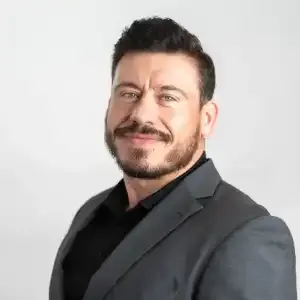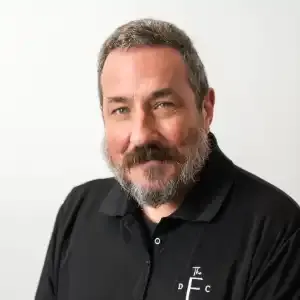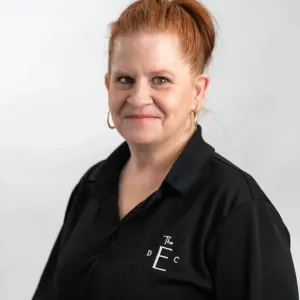






The Encino Recovery & Detox Center
Verified Center
This provider's information has been quality-checked by Recovery.com's Research Team for accuracy and completeness, including center verification through appropriate third-party organizations.
Treatment Focus
This center treats substance use disorders and co-occurring mental health conditions. Your treatment plan addresses each condition at once with personalized, compassionate care for comprehensive healing.
Primary Level of Care
Offering intensive care with 24/7 monitoring, residential treatment is typically 30 days and can cover multiple levels of care. Length can range from 14 to 90 days typically.
Treatment Focus
This center treats substance use disorders and co-occurring mental health conditions. Your treatment plan addresses each condition at once with personalized, compassionate care for comprehensive healing.
Primary Level of Care
Offering intensive care with 24/7 monitoring, residential treatment is typically 30 days and can cover multiple levels of care. Length can range from 14 to 90 days typically.
Provider's Policy
We are experts with insurance. We will do our best to work out a plan to manage admission, deductibles and out possible out of pocket costs. The Encino Recovery & Detox DOES NOT accept Medicaid, Medicare, or state insurance.
The Encino Recovery & Detox Center
The Encino Recovery & Detox Center
About The Encino Recovery & Detox Center
The Encino Recovery & Detox Center offers upscale amenities that foster a peaceful and welcoming environment ideal for recovery and reflection. They treat addiction and co-occurring mental health conditions with programs tailored specifically for executives and couples. The relational model of care emphasizes connection, relationships, and a loving reintroduction to the self. The facility features exclusively private rooms, gourmet dining options, fitness amenities, and tranquil outdoor areas, all designed to enhance the experience and help clients feel comfortable as they undergo treatment. The aim is to equip clients with the necessary support, tools, and relationships to rebuild their lives, enhance their connections, and flourish both personally and professionally.
Treating Addiction and Its Root Causes
Treatment begins at The Encino Recovery & Detox Center with a thorough evaluation to assess all detox and psychiatric mental health needs providing valuable insight into the potential root cause of each client's addiction. Their services include medically supervised detox with 24/7 nursing care and residential treatment addressing substance addictions and co-occurring mental health conditions like anxiety, depression, trauma/complex trauma/PTSD, self-harm and more. Multidisciplinary staff provide evidence-based care, individual therapy, group therapy, peer support, and medication-assisted treatment (MAT).
Evidence-Based Care for Whole-Person Healing
The Encino Recovery & Detox Center uses evidence-based, evidence-led therapies to treat addiction and co-occurring mental health conditions. These include cognitive behavioral therapy (CBT), dialectical behavioral therapy (DBT), internal family systems therapy (IFS), acceptance and commitment therapy (ACT), neurofeedback, trauma-informed CBT, Gestalt therapy, clinical hypnotherapy, and mindfulness-based cognitive therapy. Trauma-informed clinicians provide inclusive care for healing. They also offer psychoeducation, anger replacement therapy (ART), and educational/occupational support for clients beginning or restarting work/school. The Encino Recovery & Detox Center provides discharge planning and help with referrals. Clients also join a robust alumni program led and supervised by Encino’s therapists.
Spa-Like Living
The Encino’s upscale residential treatment facilities – The Bungalow and The Moonshade – provide clients with a peaceful setting to focus on recovery. The seclusion, outdoor spaces, therapy space and privacy truly give this treatment center a spa-like appeal. Clients reside in private rooms with impressive living and sleeping spaces, including in-home entertainment and laundry service. Outdoors, clients enjoy green areas, a sun deck, and a jacuzzi. A chef trained under Wolfgang Puck provides gourmet cuisine focused on nutrition. Clients can also prioritize their physical health with massage, fitness and yoga instruction, and use of the strength and cardio equipment.
Highlights from the Center
Highlights
These highlights are provided by and paid for by the center.
Perfect for Professionals
On-site Medical Detox
Private Rooms Only
Tech Friendly
Center Overview
Treatment Focus
This center treats substance use disorders and co-occurring mental health conditions. Your treatment plan addresses each condition at once with personalized, compassionate care for comprehensive healing.
Joint Commission Accredited
The Joint Commission accreditation is a voluntary, objective process that evaluates and accredits healthcare organizations (like treatment centers) based on performance standards designed to improve quality and safety for patients. To be accredited means the treatment center has been found to meet the Commission's standards for quality and safety in patient care.
Insurance Accepted
Cash Pay Rates
Estimated Cash Pay Rate
Center pricing can vary based on program and length of stay. Contact the center for more information. Recovery.com strives for price transparency so you can make an informed decision.
Meet Your Care Team

Andrew Levander
Chief Clinical Officer
LMFT, M.A.C.

Jamine Hernandez
Program Director
RAC

Nikki Herrera
Somatic Experience
RADT

Maria Diaz
Dir. Business Development

Scott Ford
‘Recovery Guru’
RADT

Krystal Smith
Director of Admissions and Business Development

Andrew Student
IMS / Case Manager
CADAC

Nicole Johnstone
Recovery Manager
RADT

Sonia Canton
Case Manager
CADAC




Levels of Care








Your Care Options
Specializations
Alcohol
Using alcohol as a coping mechanism, or drinking excessively throughout the week, signals an alcohol use disorder.
Detox
Detox fully and safely removes toxic substances from the body, allowing the next steps in treatment to begin with a clean slate.
Benzodiazepines
Benzodiazepines are prescribed to treat anxiety and sleep issues. They are highly habit forming, and their abuse can cause mood changes and poor judgement.
Co-Occurring Disorders
A person with multiple mental health diagnoses, such as addiction and depression, has co-occurring disorders also called dual diagnosis.
Depression
Symptoms of depression may include fatigue, a sense of numbness, and loss of interest in activities. This condition can range from mild to severe.
Executives
Executive treatment programs typically directly support the needs of people who manage businesses and may provide flexible schedules and office space to allow work during treatment.
Professionals
Busy, high-ranking professionals get the personalized treatment they need with greater accommodations for work, privacy, and outside communication.
Who We Treat
Older Adults
Addiction and mental health treatment caters to adults 55+ and the age-specific challenges that can come with recovery, wellness, and overall happiness.
Co-Occurring Disorders
A person with multiple mental health diagnoses, such as addiction and depression, has co-occurring disorders also called dual diagnosis.
Executives
Executive treatment programs typically directly support the needs of people who manage businesses and may provide flexible schedules and office space to allow work during treatment.
Young Adults
Emerging adults ages 18-25 receive treatment catered to the unique challenges of early adulthood, like college, risky behaviors, and vocational struggles.
LGBTQ+
Addiction and mental illnesses in the LGBTQ+ community must be treated with an affirming, safe, and relevant approach, which many centers provide.
Men and Women
Men and women attend treatment for addiction in a co-ed setting, going to therapy groups together to share experiences, struggles, and successes.
Approaches
Bio-Medical
A philosophy focusing on the biomechanics behind mental health disorders, using prescribed medications as a supplement to behavioral therapy.
Evidence-Based
A combination of scientifically rooted therapies and treatments make up evidence-based care, defined by their measured and proven results.
Experiential
Expressive tools and therapies help patients process past situations, learn more about themselves, and find healing through action.
Twelve Step
Incorporating spirituality, community, and responsibility, 12-Step philosophies prioritize the guidance of a Higher Power and a continuation of 12-Step practices.
Therapies
1-on-1 Counseling
Patient and therapist meet 1-on-1 to work through difficult emotions and behavioral challenges in a personal, private setting.
Trauma-Specific Therapy
This form of talk therapy addresses any childhood trauma at the root of a patient's current diagnosis.
Rational Emotive Behavior Therapy
A type of cognitive therapy that identifies negative self-defeating thoughts and behaviors, rewriting beliefs to be positive, empowering, and present.
Attachment-Based Family Therapy
ABFT is a trauma-focused therapy that teaches you to form healthy relationships by rebuilding trust and healing attachment issues formed in childhood.
Art Therapy
Visual art invites patients to examine the emotions within their work, focusing on the process of creativity and its gentle therapeutic power.
Experiential Therapy
With this approach, patients heal by doing. Therapists help patients process difficult emotions to speak, using guided activities like art or dance.
Family Therapy
Family therapy addresses group dynamics within a family system, with a focus on improving communication and interrupting unhealthy relationship patterns.
Conditions We Treat
Grief and Loss
Grief is a natural reaction to loss, but severe grief can interfere with your ability to function. You can get treatment for this condition.
Personality Disorders
Personality disorders destabilize the way a person thinks, feels, and behaves. If untreated, they can undermine relationships and lead to severe distress.
Anxiety
Anxiety is a common mental health condition that can include excessive worry, panic attacks, physical tension, and increased blood pressure.
Bipolar
This mental health condition is characterized by extreme mood swings between depression, mania, and remission.
Burnout
Burnout entails mental and physical exhaustion, and leads to a severe lack of fulfillment. This condition is often caused by overwork.
Codependency
Codependency is a pattern of emotional dependence and controlling behavior. It's most common among people with addicted loved ones.
Depression
Symptoms of depression may include fatigue, a sense of numbness, and loss of interest in activities. This condition can range from mild to severe.
Internet Addiction
Internet addiction is common among children teens. This compulsive disorder can damage relationships, school performance, sleep habits, and physical health.
Substances We Treat
Alcohol
Using alcohol as a coping mechanism, or drinking excessively throughout the week, signals an alcohol use disorder.
Benzodiazepines
Benzodiazepines are prescribed to treat anxiety and sleep issues. They are highly habit forming, and their abuse can cause mood changes and poor judgement.
Chronic Relapse
Consistent relapse occurs repeatedly, after partial recovery from addiction. This condition requires long-term treatment.
Co-Occurring Disorders
A person with multiple mental health diagnoses, such as addiction and depression, has co-occurring disorders also called dual diagnosis.
Cocaine
Cocaine is a stimulant with euphoric effects. Agitation, muscle ticks, psychosis, and heart issues are common symptoms of cocaine abuse.
Drug Addiction
Drug addiction is the excessive and repetitive use of substances, despite harmful consequences to a person's life, health, and relationships.
Ecstasy
Ecstasy is a stimulant that causes intense euphoria and heightened awareness. Abuse of this drug can trigger depression, insomnia, and memory problems.
Heroin
Heroin is a highly addictive and illegal opioid. It can cause insomnia, collapsed veins, heart issues, and additional mental health issues.
Psychedelics
Hallucinogenic drugs—like LSD—cause euphoria and increased sensory experiences. When abused, they can lead to depression and psychosis.
Languages
Aftercare
Care Designed for Your Needs
Personal Amenities
Amenities
Special Considerations
Couples program
Using gentle clinical care, therapists guide patients and their partner through guided sessions to address issues and work towards lasting solutions.
Executive Program
Addiction and mental health treatment for executives typically involves high discretion, greater technology access, and more private, 1-on-1 care.
Flexible technology policies
Centers with flexible technology policies allow professionals to stay in touch with work and give patients a greater sense of connection and normalcy.
Gender-specific groups
Patients in gender-specific groups gain the opportunity to discuss challenges unique to their gender in a comfortable, safe setting conducive to healing.
Activities
Yoga
Yoga is both a physical and spiritual practice. It includes a flow of movement, breathing techniques, and meditation.
Off-Site Activities
Yoga
Yoga is both a physical and spiritual practice. It includes a flow of movement, breathing techniques, and meditation.






